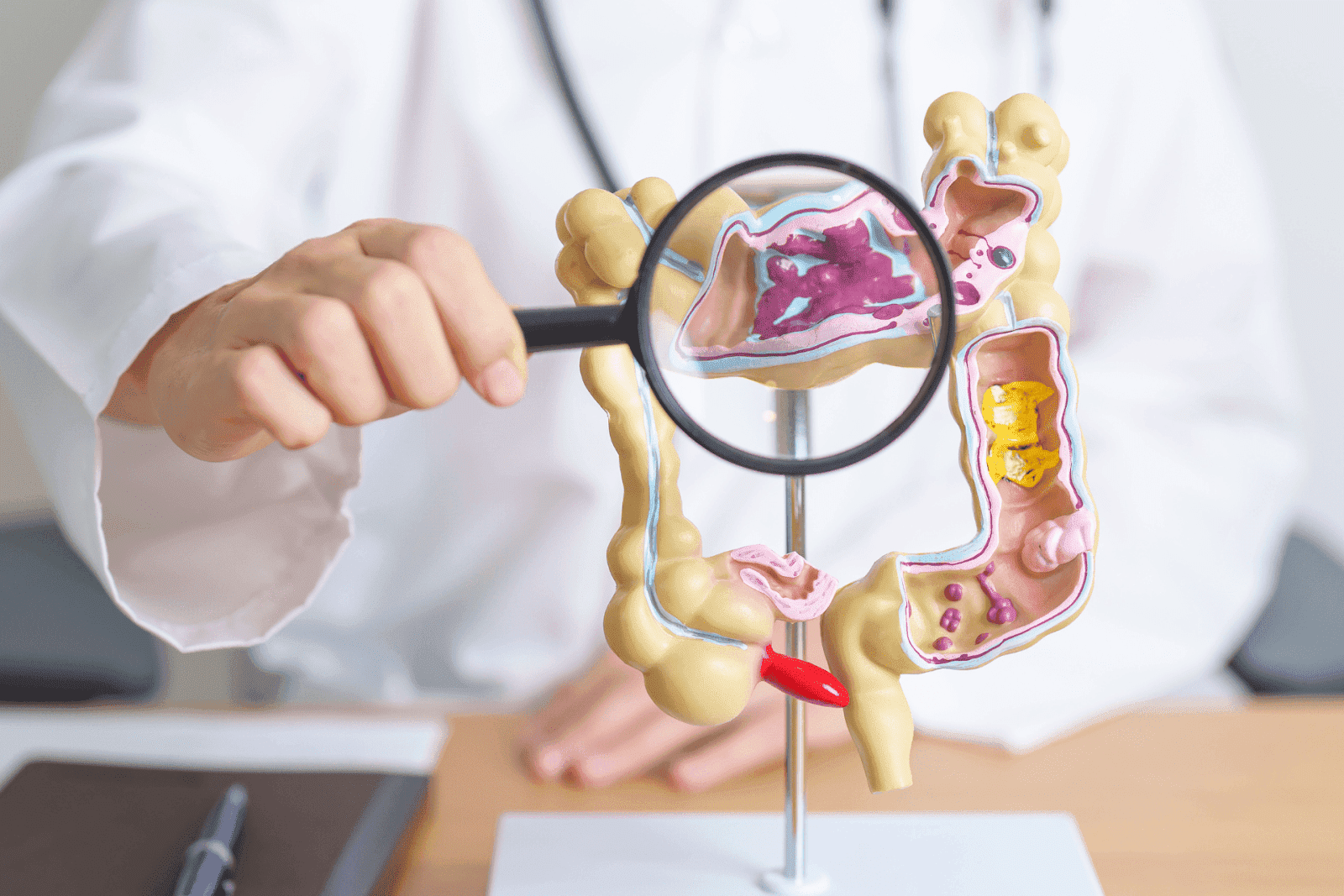Experiencing frequent bloating or abdominal cramping can be more than just an occasional discomfort; it might be a sign of Irritable Bowel Syndrome (IBS), a common but often misunderstood digestive disorder. Millions of people worldwide deal with IBS symptoms daily, yet many remain undiagnosed or confused about their condition. Understanding IBS, its symptoms, causes, and treatment options is crucial to managing the condition effectively and improving quality of life.
What Is Irritable Bowel Syndrome (IBS)?
IBS is a chronic gastrointestinal disorder characterized by a group of symptoms that typically include abdominal pain, bloating, cramping, and changes in bowel habits such as diarrhea, constipation, or alternating between both. Unlike other digestive diseases, IBS does not cause inflammation or permanent damage to the intestines, but it can significantly impact daily life. The exact cause of IBS remains unclear, but it is believed to involve a combination of factors, including gut-brain interaction, altered gut motility, and increased sensitivity to gastrointestinal stimuli.
According to the International Foundation for Gastrointestinal Disorders, IBS affects approximately 10-15% of the global population, making it one of the most common functional gastrointestinal disorders. Despite its prevalence, IBS is often underdiagnosed because its symptoms overlap with other conditions, and many people may not seek medical advice. Furthermore, societal stigma surrounding digestive disorders can lead individuals to feel embarrassed or reluctant to discuss their symptoms, which can delay diagnosis and treatment.
 Common Symptoms of IBS
Common Symptoms of IBS
IBS symptoms can vary widely between individuals but generally include:
Abdominal pain or cramping: Often relieved by bowel movements.
Bloating and gas: A sensation of fullness or swelling in the abdomen.
Changes in bowel habits: Diarrhea, constipation, or alternating between both.
Mucus in stool: Some people notice whitish mucus in their bowel movements.
Urgency or difficulty with bowel movements: Feeling an urgent need to go or incomplete evacuation.
These symptoms can fluctuate, sometimes improving and other times worsening, often triggered by diet, stress, or hormonal changes. Many individuals with IBS report that certain foods, such as dairy products, gluten, or high-fat meals, can exacerbate their symptoms, leading to careful monitoring of their diet. Additionally, psychological factors such as anxiety and depression are commonly associated with IBS, indicating that the condition may not only be a physical ailment but also be influenced by emotional well-being. This interplay between the gut and the brain has led to increased interest in holistic approaches to managing IBS, including stress management techniques, cognitive behavioral therapy, and dietary modifications like the low-FODMAP diet, which aims to reduce fermentable carbohydrates that can trigger symptoms.
Why Does IBS Occur? Understanding the Causes
The exact cause of IBS remains unknown, but researchers believe it results from a combination of factors affecting the gut and brain interaction, often referred to as the gut-brain axis. Several mechanisms may contribute to IBS symptoms:
1. Gut-Brain Axis Dysregulation
The digestive system is closely connected to the nervous system. In IBS, this communication can become disrupted, leading to abnormal gut motility (movement) and heightened sensitivity to pain. This means the intestines may contract too strongly or weakly, causing cramping or irregular bowel movements. This dysregulation can also manifest as a heightened perception of pain, where normal sensations in the gut are interpreted as discomfort or distress, further complicating the experience of those with IBS.
2. Gut Microbiome Imbalance
The gut is home to trillions of bacteria that play a vital role in digestion and immune function. An imbalance in this microbiome, sometimes triggered by infections or antibiotics, can contribute to IBS symptoms. Research suggests that a diverse microbiome is essential for maintaining gut health, and a reduction in this diversity may lead to increased inflammation and digestive issues. Probiotics and dietary changes aimed at restoring a healthy microbiome are often explored as potential strategies for alleviating IBS symptoms.
3. Food Sensitivities and Diet
Many individuals with IBS find that certain foods exacerbate their symptoms. Common triggers include dairy, gluten, fatty foods, caffeine, and artificial sweeteners. Understanding and identifying these triggers through diet modification can provide relief. Additionally, the concept of a low-FODMAP diet has gained popularity, as it involves reducing fermentable carbohydrates that can lead to gas and bloating, offering a structured approach to dietary management for those suffering from IBS.
4. Stress and Mental Health
Stress and anxiety are known to worsen IBS symptoms. The gut-brain axis means emotional well-being directly influences digestive health, making stress management a key component of IBS care. Cognitive-behavioral therapy, mindfulness practices, and relaxation techniques have been shown to help some individuals manage their symptoms more effectively. Furthermore, the interplay between psychological factors and IBS underscores the importance of a holistic approach to treatment, addressing both mental and physical health to achieve better outcomes.
Diagnosing IBS: When to Seek Medical Advice
Because IBS symptoms overlap with other serious conditions such as inflammatory bowel disease (IBD), celiac disease, or colorectal cancer, it’s essential to get a proper diagnosis. If you experience persistent bloating, cramping, or changes in bowel habits for more than a few weeks, consulting a healthcare professional is recommended. Early intervention can not only alleviate discomfort but also help in managing symptoms effectively before they escalate into more severe health issues.
Diagnosis typically involves a detailed medical history, symptom assessment, and ruling out other conditions through tests such as blood work, stool analysis, or colonoscopy if necessary. It’s important to be open and honest with your healthcare provider about all symptoms, including any emotional or psychological factors, as stress and anxiety can significantly impact gastrointestinal health. Keeping a symptom diary can also be beneficial, allowing you to track patterns and triggers that may aid in the diagnostic process.
For those seeking convenient and affordable access to healthcare professionals, telehealth services like Doctronic.ai offer a modern solution. Doctronic provides 24/7 video visits with licensed doctors across all 50 states, making it easier than ever to discuss symptoms, receive a diagnosis, and get personalized treatment recommendations without leaving home. This innovative approach not only saves time but also reduces the anxiety that often accompanies in-person visits, allowing patients to seek help in a comfortable environment.
Moreover, telehealth platforms often provide additional resources, such as educational materials and support groups, which can be invaluable for individuals navigating the complexities of IBS. Engaging with others who share similar experiences can foster a sense of community and provide emotional support, which is just as crucial as medical treatment. As the understanding of IBS continues to evolve, staying informed about the latest research and treatment options through these platforms can empower patients to take charge of their health journey.
Managing IBS: Lifestyle and Treatment Options
While there is no cure for IBS, many people find relief through a combination of lifestyle changes, dietary adjustments, and medication. The goal is to reduce symptoms and improve daily functioning.
Dietary Modifications
One of the most effective ways to manage IBS is through diet. Many patients benefit from:
Low FODMAP Diet: This involves reducing fermentable oligosaccharides, disaccharides, monosaccharides, and polyols; types of carbohydrates that can cause gas and bloating.
Identifying Trigger Foods: Keeping a food diary to track symptoms and avoid foods that worsen symptoms.
Increasing Fiber Intake: Soluble fiber can help regulate bowel movements, but insoluble fiber may aggravate symptoms in some people.
Stress Reduction Techniques
Since stress can exacerbate IBS, incorporating relaxation methods such as meditation, yoga, or cognitive-behavioral therapy can be beneficial. Mindfulness practices help regulate the gut-brain axis and reduce symptom severity.
Medications and Supplements
Depending on symptoms, doctors may recommend:
Antispasmodics to reduce cramping.
Laxatives or anti-diarrheal agents to manage bowel habits.
Probiotics to support gut health.
Antidepressants in low doses to manage pain and mood.
It’s important to consult a healthcare provider before starting any medication or supplement regimen.
Why Choose Telehealth for IBS Care?
Living with IBS means dealing with unpredictable symptoms that can disrupt daily life. Accessing timely and expert medical advice is crucial for effective management. Doctronic.ai has revolutionized how patients connect with healthcare providers, especially for chronic conditions like IBS.
Doctronic offers:
24/7 Access: Speak with a licensed doctor anytime, anywhere in the U.S.
Affordable Care: Telehealth visits cost less than $40, making healthcare accessible.
Personalized Treatment: Doctronic’s AI-powered system synthesizes the latest medical research to provide accurate diagnoses and treatment plans tailored to your needs.
Convenience: No waiting rooms or travel—get care from the comfort of your home.
With over 10 million users and counting, Doctronic is quickly becoming the go-to telehealth provider for primary care, offering a smarter, faster, and more personal approach to managing health conditions like IBS.
When to Seek Urgent Care for IBS Symptoms
While IBS is a chronic condition, certain symptoms require immediate medical attention. If you experience any of the following, seek urgent care or emergency services:
Severe abdominal pain that does not improve.
Unexplained weight loss.
Blood in stool.
Persistent vomiting or diarrhea leading to dehydration.
Fever accompanying abdominal symptoms.
Although Doctronic does not provide a list of urgent care locations, their telehealth platform can help determine if your symptoms require urgent evaluation and guide you on next steps.
Living Well with IBS: Tips for Daily Management
Managing IBS is a continuous journey that involves understanding your body and making informed choices. Here are some practical tips to help you live well with IBS:
1. Keep a Symptom Diary
Track your meals, symptoms, stress levels, and bowel habits. This can help identify triggers and patterns to discuss with your healthcare provider.
2. Stay Hydrated
Drinking plenty of water supports digestion and helps prevent constipation.
3. Exercise Regularly
Physical activity promotes healthy bowel function and reduces stress.
4. Prioritize Sleep
Good sleep hygiene supports overall health and can reduce symptom flare-ups.
5. Seek Support
Connecting with others who have IBS, whether through support groups or online communities, can provide emotional support and practical advice.
 Fast, Expert Help for IBS Concerns
Fast, Expert Help for IBS Concerns
Constant bloating or cramping can be more than a minor nuisance; it may signal IBS, a condition that affects millions but is often manageable with the right approach. Understanding the symptoms, causes, and treatment options empowers individuals to take control of their digestive health.
For those seeking convenient, affordable, and expert care, Doctronic.ai offers an innovative solution. With AI-driven insights and access to licensed doctors anytime, Doctronic is transforming how people manage IBS and other health concerns.
If you’re struggling with persistent bloating, cramping, or other digestive symptoms, don’t wait—reach out to a healthcare provider today and take the first step toward better health.
Experience the Future of IBS Care with Doctronic
Don't let IBS symptoms dictate your life. Embrace the innovative care Doctronic offers, where cutting-edge AI meets compassionate healthcare. With Doctronic, you're not just getting answers; you're getting personalized, AI-powered insights into your health. Our telehealth services are not only affordable and convenient, but they also provide the most modern medical advice available, tailored specifically to you. Skip the line and experience the difference with a free AI doctor visit that's as unique as your health needs. Talk to an AI Doctor Now, for free.



 Common Symptoms of IBS
Common Symptoms of IBS Fast, Expert Help for IBS Concerns
Fast, Expert Help for IBS Concerns